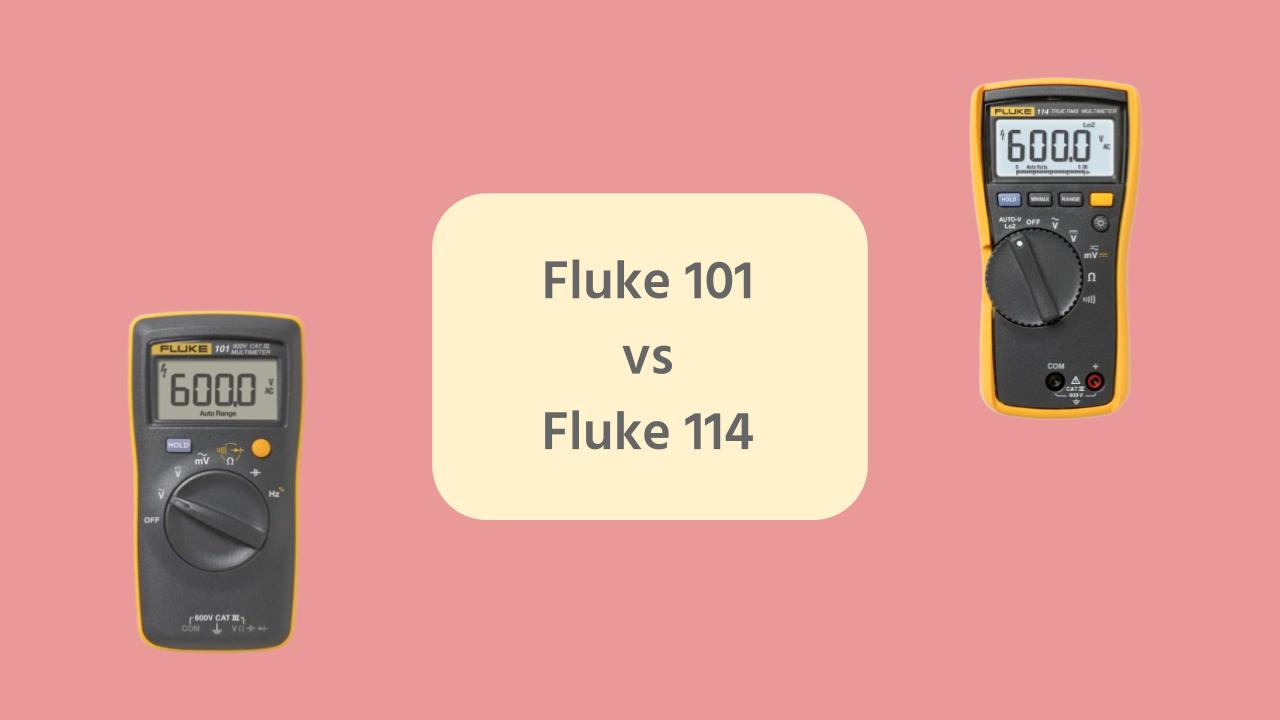Fluke 101 and Fluke 114 multimeters are popular choices for different user groups. Though both models bear the hallmark of Fluke’s reliability, they cater to distinct needs and preferences.
This article delves into the differences between the 101 and 114 to help you decide which multimeter best suits your requirements.
Table of Contents
Summary of differences between Fluke 101 and 114
The Fluke 101 is a basic digital multimeter designed for simple electrical tests. It is known for its compact size and ease of use, making it an ideal entry-level choice for hobbyists, students, and general home use.
In contrast, the Fluke 114 is a more advanced tool, equipped with features tailored for professional electricians and technicians who need precise and reliable measurements in complex electrical environments.
Comparison Table
| Feature | Fluke 101 | Fluke 114 |
|---|---|---|
| 💳 Price Range | Check Price | Check Price |
| Category | Basic pocket digital multimeter | Compact true-RMS digital multimeter ✅ |
| Display | 6000 count resolution | 6000 count resolution |
| Voltage Measurement | AC/DC up to 600V | AC/DC up to 600V |
| Current Measurement | No direct current measurement | No direct current measurement |
| Resistance | Up to 40 MΩ | Up to 40 MΩ |
| Capacitance | None | None |
| Safety Rating | CAT III 600 V | CAT III 600 V |
| Special Features | Compact design, auto-ranging | Low input impedance (prevents false readings due to ghost voltage) |
| True RMS | No | Yes ✅ |
| Continuity | Yes | Yes |
| Diode Test | Yes | Yes |
| Other Functions | – | Min/Max/Avg recording, AutoVolt automatic AC/DC voltage selection ✅ |
| Target Audience | Do-it-yourselfers, basic household and automotive use | Electricians, technicians with more advanced electrical troubleshooting needs |
Summary:
- Fluke 101: This is an entry-level, highly portable meter suitable for basic electrical and electronic measurements. Its simplicity and affordability make it ideal for hobbyists, students, and as a compact tool for quick diagnostics.
- Fluke 114: Designed for professional use, this meter includes features like true RMS measurements and advanced electrical diagnostics tools. It’s ideal for electricians and other professionals who need reliable, precise measurements in complex electrical environments.
Choosing between the two depends largely on the specific requirements of the user, including the complexity of the tasks and the level of detail needed in measurements.



